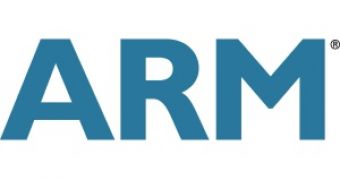Cambridge, England-based ARM has announced today that it has managed to bump up the speed of its dual-core Cortex A9 processor, which can now support speeds greater than 2GHz. According to the company, the announcement was made to provide designers with a choice for a low-power, high-performance processor that can operate at speeds similar to that of many x86 chips available today. While most ARM-based processors are currently powering mobile devices such as smartphones, a 2GHz ARM processor could enable larger designs, such as netbooks or MIDs.
“The Cortex-A9 MPCore processor has already been widely accepted as the processor of choice for high-performance embedded applications across a broad spectrum of demanding consumer and enterprise devices,” said Eric Schorn, VP marketing, Processor Division, ARM. “ARM’s parallel development of advanced, optimized physical IP components demonstrates a new level of collaborative differentiation while enabling our Partners to expand their penetration into high margin domains traditionally occupied by proprietary architectures.”
According to ARM, its dual-core Cortex 9 processor can run at speeds of 2GHz and consumes as little as 1.9 watts of power. In addition, when compared to one of Intel's most successful low-power processors to date, the Atom N270, the ARM chip is said to deliver better results, according to the benchmarks that have been provided by the company. Unfortunately, the N270 processor was introduced back in 2008 and, since then, has been powering the majority of Windows-based netbook systems available on the market. As far as ARM's dual-core Cortex A9 processor is concerned, these chips are currently limited to Linux-based operating systems and Microsoft's Windows CE.
ARM has been making some progress with its latest processors, as these chips are no longer restricted to smartphones and are currently powering a wider range of devices. With the boost of speed, they could end up in more consumer devices, which could make Microsoft consider porting Windows 7 or a future operating system to the ARM chip architecture.
With the Cortex A9 speed- and power-optimized technology currently available for licensing, ARM says that delivery will begin in the fourth quarter of 2009.

 14 DAY TRIAL //
14 DAY TRIAL //